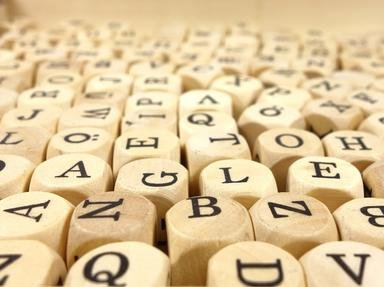Quiz Answer Key and Fun Facts
1. Change one letter in the word 'easy' to get a cardinal direction.
2. Change one letter in the previous word to find a synonym for 'enormous'.
3. Change one letter in the previous word to give a piece of equipment used by cobblers.
4. Change one letter in the previous word to get a word used as a verb or noun and meaning 'to whip'' or 'whip'.
5. Change one letter in the previous word to find a synonym for 'ready money'.
6. Change one letter in the previous word to give a collective noun for the actors in a play.
7. Change one letter in the previous word to get a vehicle which, proverbially, should not be put before a horse.
8. Change one letter in the previous word to find a male deer.
9. Change one letter in the previous word to give a mammal from the Lepus genus.
10. Change one letter in the previous word to get a word meaning the opposite of 'easy'.
Source: Author
misstified
This quiz was reviewed by FunTrivia editor
spanishliz before going online.
Any errors found in FunTrivia content are routinely corrected through our feedback system.
